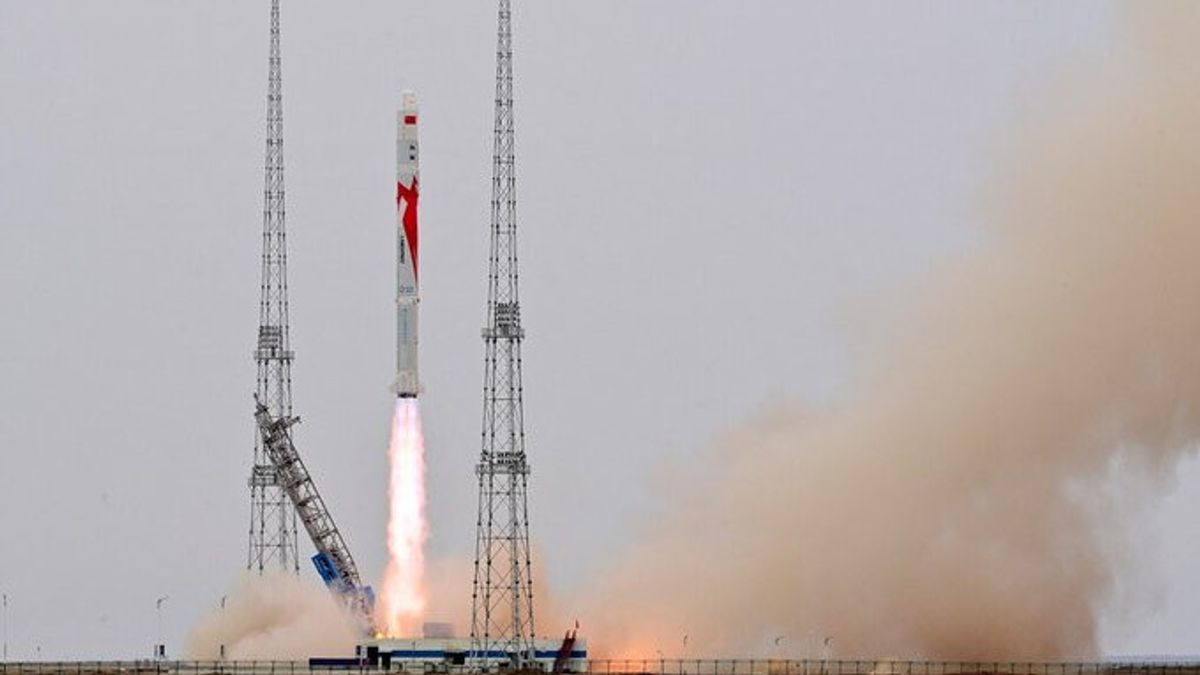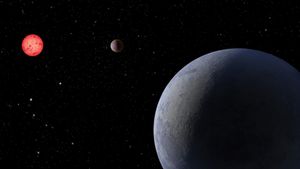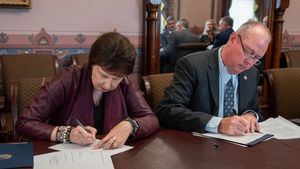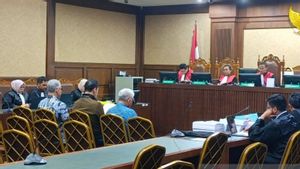JAKARTA - On Saturday, December 9, the rocket developed by LandSpace Technology launched three satellites into orbit. This is a milestone for this private rocket startup from China on a mission to test whether its vehicles using methane and liquid oxygen are ready for commercial launch.
This success could increase investor confidence in methane as a potential rocket fuel, which is thought to help reduce costs and support reusable rockets in a cleaner and more efficient way.
Several Chinese private rocket startups have been preparing for test or commercial launches, aiming to prepare their products facing growing demand in China's growing commercial space industry. Especially in the midst of increased competition to form a satellite cluster as an alternative to Elon Musk's Starlink.
The Zhuque-2 Y-3 was launched at 7:39 a.m. (11.39 GMT on Friday) from the Jiuquan Satellite Launch Center in China's Inner Mongolia region, becoming the LandSpace's third test rocket for Zhuque-2, and the first to successfully lift the satellite.
The second attempt, without a real satellite, last July made LandSpace the world's first company to launch a liquid methane-oxygen rocket, ahead of US competitors including Musk's SpaceX and Jeff Bezos' Blue Origin.
"The two launches show that Zhuque-2 is reliable for commercial launches," LandSpace said in a statement.
LandSpace said the three satellites reached a solar sync orbit at an altitude of 460 km, without providing details on the satellite's total type and weight.
Zhuque-2 is capable of carrying a total payload of 1.5 tonnes into a 500 km orbit, which will be upgraded to 4 tonnes in an upgraded version, the Beijing-based company said.
Zhuque-2 Y-3 carried two 50 kilogram test satellites developed by Chinese startup Spacety, one of whom adopted technology from a company called Hongqing, according to Spacety's statement on Saturday, December 9.
Hongqing said in a statement that the rocket also brought one of his test satellites, without revealing its weight.
SEE ALSO:
The two Hongqing-related test satellites in Saturday's launch were designed to support the formation of a constellation of low-orbit satellites, Hongqing said, where LandSpace owns shares.
LandSpace said last year the first launch in December failed, without specifying whether the test rocket, Zhuque-2 Y-1, was carrying any satellite payloads.
The eight-year-old startup said earlier this year that it plans to provide clients about three launches by 2024 and double them by 2025.
China's startup, OrientSpace, said it had scheduled the inaugural launch of their solid fuel rocket, Gravity-1, in December. Deep Blue Aerospace, which develops a reusable fuel rocket, aims to complete its first test launch next year by launching the Nebula-1 rocket into orbit and returning it.
Galactic Energy on Tuesday, December 5 launched their solid booster rocket Ceres-1, with two satellites into orbit, following a failure in September and a series of previous successful launches.
The English, Chinese, Japanese, Arabic, and French versions are automatically generated by the AI. So there may still be inaccuracies in translating, please always see Indonesian as our main language. (system supported by DigitalSiber.id)


















